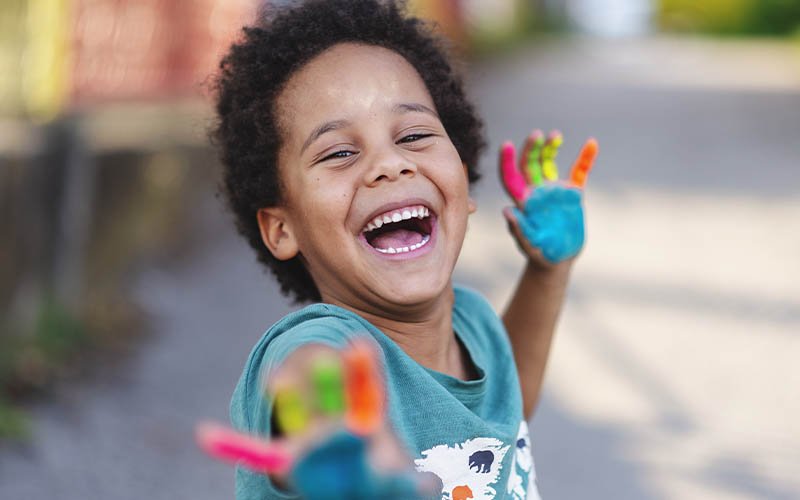Table of Contents
As Everything Changes
All kids need consistency to help them develop and grow. It can be scary for children when the world changes around them – particularly during times like a global pandemic! All of a sudden, the “normal” routine that they were accustomed to is upended. Now children need to adjust to a “new normal” consisting of changes in even simple tasks, like hygiene but extending further into other aspects of their lives.
Even though places are opening, the restrictions are still here. For instance, children must wash their hands after touching toys, equipment, food, and other items found outside of their home. Children need to wear masks when they ride the bus, go to school, or run around on a playground. They are expected to keep their distance from other children and may need to walk in designated areas to ensure they do not step too near anyone. Kids are not attending playdates, congregating at the park, or attending parties as much as they used to.
Some Children are Doing Better than Others
Many children have adjusted “well enough” to these changes. They have happily returned to school in many places, relishing the structure, variety, and some of the social interactions that they have missed. Some might say they “don’t even notice” wearing a mask and tolerate wearing one for hours a day. They follow the rules to go outside, see friends, and experience more freedoms that they missed during lockdowns. Many parents comment that their children have adjusted even better than they have to the restrictions and impositions. It’s easy to think that these children are “thriving,” but emotionally, many are simply holding on as they wait for better days.
Look for the Signs
Children have lost not only a significant amount of academic time, but relationships have suffered, fear of getting sick and losing loved ones has escalated, and some children are struggling to leave their home or return to daily routines. Some kids will express their anxiety or sadness outright. These children will feel uncomfortable leaving their home because they do not know what will happen next or if something bad could happen. You can help your child manage these feelings by explaining the many uncertainties they will experience as they move through their lives and the benefits of taking risks while being safe.
The ones who leave their homes, attend school, and socialize with friends, may seem happy. It’s important to remember that children will not always tell you when something is wrong. You should continue asking them how they are adjusting, share relevant information about the pandemic as appropriate, and look for signs that they may need support. One sign might be a child retreating to play video games for hours. Another might be sudden mood changes, such as seeming happy one moment only to become upset the next. Changes in peer associations, increased arguing, and general discomfort at home with everyday activities are some more indications that all is not well with your child.
Offer Support
No matter what camp your child may fall into, it’s important they know you are there to support them. This could be in the form of answering or asking questions, providing comfort, taking an interest in their hobbies and interests, and planning activities with them. Checking in with your child often will greatly benefit you and your child. You will be more aware of difficulties they may be experiencing ad this will strengthen the relationship. Your child will know you are approachable, reliable, interested, and most importantly, care about, and want to promote their well-being.
We are “getting through” this, but it is still imperative to help children not just tolerate difficulties but express their feelings as they encounter them. We should show them how resilient they are and how they can overcome challenges by acknowledging that it is ok to feel bad during times like this. As we slowly get back to living life to the fullest, let’s make sure we are helping our children do the same.


